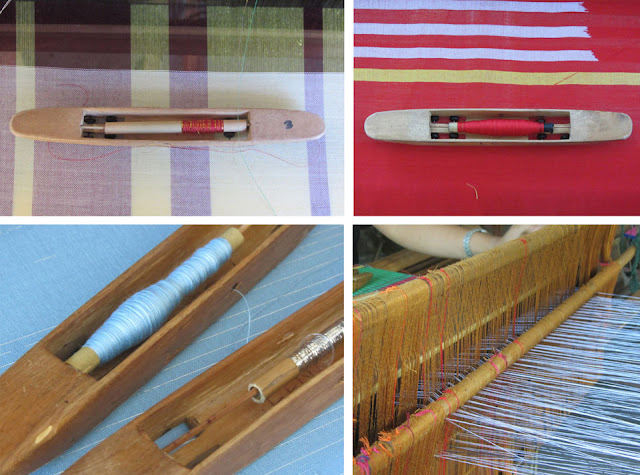Surviving Cancer: Early Detection
It started with a lump in her right breast in 2003. After undergoing ultrasound and mammogram and a biopsy in 2004, Editha dela Cruz’s doctor diagnosed her with stage 2 cancer.
“That night, I couldn’t sleep. I was also alone because I was in Manila and my family’s in Iloilo. I don’t want to call the house because I didn’t know how to explain. But because of my strong faith, I offered myself to God, knowing that He will take care of me. Somehow, that gave me strength. Although at that time, I thought that I will die,” she said.
“When you say cancer, the notion of death is the first thing that comes to one’s mind. My children started going to their school’s chapel to pray for me. And I saw that my husband was really fearful of losing me,” she added.
But sometimes, our fears are rooted from ignorance. So, the dela Cruz couple visited Dr. Jesena, a famous oncologist in Iloilo City. Jesena assured Editha that her cancer is curable because it was discovered during its early stage.
“She told me that as long as I follow the correct medical protocol, I will be okay. She also explained our choices and what I will go through. That lightened my burden. I realized that I have a big chance of surviving,” she said.
Editha’s family, friends, officemates and her employer rallied behind her for support. Her company has an HMO so it shouldered her mastectomy and chemotherapy treatments.
She also continued going to work. “Cancer is like an evil spirit that you should fight off. I always believe that good will always prevail over evil,” she said.
“I knew God would take care of me. Somehow, my experience has prepared me about dying as well,” she said of the fear of death and worries that plagued her mind during the days when she had cancer.
EARLY DETECTION
One can fight breast cancer through education, according to Editha. “You should know what to do. Eat the right kind of food. You have to be conscious of your body. If you are too busy working to take care of your family, realize that you should take care of yourself too. If you are well, you can take care of others. Do a self-breast examination because early detection is important. If you see something different with your breast, consult a doctor. Go through the doctor’s recommended laboratory exams and treatments. Avoid relying on herbals,” Editha said.
RISKS
All women are at risk for cancer, according to the Philippine Breast Cancer Network. It is the leading killer of women ages 35 to 54 worldwide. More than a million women develop breast cancer without knowing it and almost 500,000 die from it every year.
The Philippines has the highest incidence rate of breast cancer in Asia and is today considered to have the 9th highest incidence rate in the world today.
There are risk factors that cannot be avoided. First is gender. Being a woman is already a risk for developing breast cancer. Breast cells are exposed to growth-promoting effects of the female hormones, estrogen, according to the Mayo Clinic.
Second is aging. The risk increases when one gets older. Thus, women age 40 and above are advised to undergo mammogram every year. In Iloilo City, a mammogram becomes affordable during October because hospitals give as much as 20 percent discount, as their way of celebrating Breast Cancer Awareness Month.
Third factor is genetics. About five to 10 percent of breast cancers are hereditary.
Also, the denser the breast, the bigger the risk because of more glandular tissue and less fatty tissue. A dense breast tissue can also make it hard for doctors to spot problems on mammograms.
Another risk is the presence of benign breast conditions like cysts.
There are risk factors that can be managed. They are the use of contraceptives or birth control pills, alcohol consumption, red meat, being overweight or obese, lack of physical activity.
SYMPTOMS
The symptoms of breast cancer are: a breast lump or thickening that feels different from the surrounding tissue; bloody discharge from the nipple; cange in the size or shape of a breast; changes to the skin over the breast, such as dimpling; inverted nipple; peeling, scaling or flaking of the nipple or breast skin; and redness or pitting of the skin over your breast, like the skin of an orange.
LIFESTYLE CHANGES
Avoiding and eliminating known causes will prevent breast cancer.
Dr. Doris Mendoza, another breast cancer survivor has made certain lifestyle changes after she had the disease. She calls this as a “new start.”
First, one has to eat a plant-based diet, she said. A vegetarian diet is known to reduce illnesses and promote the body’s immune system.
Second, one should exercise. “You don’t have to get into a high-impact exercise in order to be healthy. Walk for 30 minutes a day. When I watch TV, I exercise instead of just sitting or lying down,” Doc Doris said.
Third, drink two liters of water a day.
Fourth, get some sleep. “Never go to sleep after midnight,” she advised. In addition, one should get at least eight hour of sleep.
Fifth, get some rest for this restores our resilience.
Sixth, practice temperance. This means we have to avoid things that are bad for us like smoking, drinking alcohol, illegal drugs, among others. It also means being moderate about the good things.
Seventh, trust in God, Doc Doris said.
BOSOM FRIENDS, INC.
Editha and Doc Doris are officers of a support group for breast cancer survivors. It’s called Bosom Friends, Inc. Doc Doris said that the “friends” means fellowship, restoration, intimacy, encouragement, needs met, dedication and spirituality.
Every year, the group holds “Walk Away Free From Breast Cancer”./
“That night, I couldn’t sleep. I was also alone because I was in Manila and my family’s in Iloilo. I don’t want to call the house because I didn’t know how to explain. But because of my strong faith, I offered myself to God, knowing that He will take care of me. Somehow, that gave me strength. Although at that time, I thought that I will die,” she said.
“When you say cancer, the notion of death is the first thing that comes to one’s mind. My children started going to their school’s chapel to pray for me. And I saw that my husband was really fearful of losing me,” she added.
But sometimes, our fears are rooted from ignorance. So, the dela Cruz couple visited Dr. Jesena, a famous oncologist in Iloilo City. Jesena assured Editha that her cancer is curable because it was discovered during its early stage.
“She told me that as long as I follow the correct medical protocol, I will be okay. She also explained our choices and what I will go through. That lightened my burden. I realized that I have a big chance of surviving,” she said.
Editha’s family, friends, officemates and her employer rallied behind her for support. Her company has an HMO so it shouldered her mastectomy and chemotherapy treatments.
She also continued going to work. “Cancer is like an evil spirit that you should fight off. I always believe that good will always prevail over evil,” she said.
“I knew God would take care of me. Somehow, my experience has prepared me about dying as well,” she said of the fear of death and worries that plagued her mind during the days when she had cancer.
EARLY DETECTION
One can fight breast cancer through education, according to Editha. “You should know what to do. Eat the right kind of food. You have to be conscious of your body. If you are too busy working to take care of your family, realize that you should take care of yourself too. If you are well, you can take care of others. Do a self-breast examination because early detection is important. If you see something different with your breast, consult a doctor. Go through the doctor’s recommended laboratory exams and treatments. Avoid relying on herbals,” Editha said.
RISKS
All women are at risk for cancer, according to the Philippine Breast Cancer Network. It is the leading killer of women ages 35 to 54 worldwide. More than a million women develop breast cancer without knowing it and almost 500,000 die from it every year.
The Philippines has the highest incidence rate of breast cancer in Asia and is today considered to have the 9th highest incidence rate in the world today.
There are risk factors that cannot be avoided. First is gender. Being a woman is already a risk for developing breast cancer. Breast cells are exposed to growth-promoting effects of the female hormones, estrogen, according to the Mayo Clinic.
Second is aging. The risk increases when one gets older. Thus, women age 40 and above are advised to undergo mammogram every year. In Iloilo City, a mammogram becomes affordable during October because hospitals give as much as 20 percent discount, as their way of celebrating Breast Cancer Awareness Month.
Third factor is genetics. About five to 10 percent of breast cancers are hereditary.
Also, the denser the breast, the bigger the risk because of more glandular tissue and less fatty tissue. A dense breast tissue can also make it hard for doctors to spot problems on mammograms.
Another risk is the presence of benign breast conditions like cysts.
There are risk factors that can be managed. They are the use of contraceptives or birth control pills, alcohol consumption, red meat, being overweight or obese, lack of physical activity.
SYMPTOMS
The symptoms of breast cancer are: a breast lump or thickening that feels different from the surrounding tissue; bloody discharge from the nipple; cange in the size or shape of a breast; changes to the skin over the breast, such as dimpling; inverted nipple; peeling, scaling or flaking of the nipple or breast skin; and redness or pitting of the skin over your breast, like the skin of an orange.
LIFESTYLE CHANGES
Avoiding and eliminating known causes will prevent breast cancer.
Dr. Doris Mendoza, another breast cancer survivor has made certain lifestyle changes after she had the disease. She calls this as a “new start.”
First, one has to eat a plant-based diet, she said. A vegetarian diet is known to reduce illnesses and promote the body’s immune system.
Second, one should exercise. “You don’t have to get into a high-impact exercise in order to be healthy. Walk for 30 minutes a day. When I watch TV, I exercise instead of just sitting or lying down,” Doc Doris said.
Third, drink two liters of water a day.
Fourth, get some sleep. “Never go to sleep after midnight,” she advised. In addition, one should get at least eight hour of sleep.
Fifth, get some rest for this restores our resilience.
Sixth, practice temperance. This means we have to avoid things that are bad for us like smoking, drinking alcohol, illegal drugs, among others. It also means being moderate about the good things.
Seventh, trust in God, Doc Doris said.
BOSOM FRIENDS, INC.
Editha and Doc Doris are officers of a support group for breast cancer survivors. It’s called Bosom Friends, Inc. Doc Doris said that the “friends” means fellowship, restoration, intimacy, encouragement, needs met, dedication and spirituality.
Every year, the group holds “Walk Away Free From Breast Cancer”./




